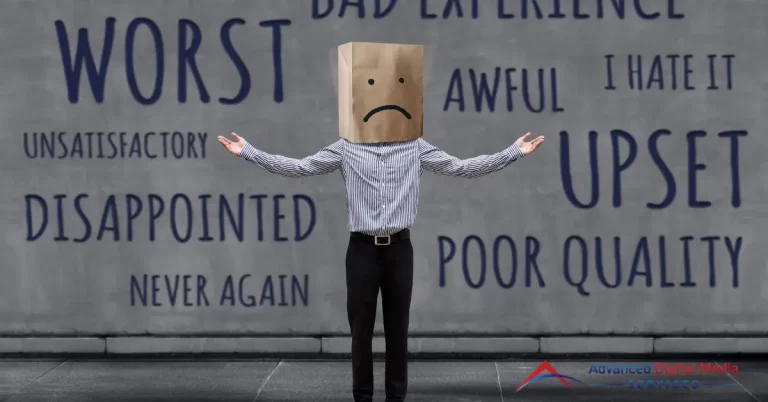Everyone can create material online. It’s hard to determine if an Internet resource you find is authentic. Evaluating online resources is crucial to any research process. Research should include the ability to find reliable content.
Fake news websites and satire present false information. People accept these websites because they seem credible and convincing. You should be able to identify what makes a source credible and trustworthy and avoid fake news websites as they could compromise your research.
This guide will enhance your skills and knowledge in evaluating online resources. This guide will teach you how to evaluate a website’s reliability and authenticity using a simple and quick website evaluation checklist.
Assessing Online Resources
When evaluating online resources, there are various factors to consider. Consider adding these factors to your website credibility checklist as you double-check the content:
1. Authorship
When assessing the content’s eligibility, it is important to consider the author. The author must be an expert in the topic covered by the article. The author should be able to prove his expertise in the subject.
The author’s information is usually found on the website alongside the content. You can find the name of the author below the title, at the end of the article, or on the side.
More information about the author can be found below the article. This is also called an author’s bio. If the author is frequently mentioned on other authoritative websites, he can be given credit.
2. Publication
If information about the author is missing, you can check with the publisher to verify authority.
Have a look at the website. Is the publication name familiar? Are you familiar with the publication name? You can verify its credibility on the subject matter by looking at its website name, logo, URL, and any other indicators. A quick glance at the URL will help you decide if it is reliable. Trustworthy websites start with.org,.edu,.gov or any other recognizable URL.
You can also check the publisher’s website via its About Us or Contact Us pages. These pages will provide information about the publisher. You can also check their details with another search.
3. Timeliness and Relevance
Research is a process that involves making inferences about the validity and timeliness of data.
Information is constantly changing over the years. It’s easy to get lost in the millions of data on the Internet. Even academic articles, such as theses or investigative reports, can contain outdated data. Information that is out-of-date may contain information that isn’t relevant or useful in today’s world.
How do you know if the content you are looking at isn’t outdated? How can you verify that the data you have is current and accurate?
Check the publication date. It is often located near the title. The date can be found in the side information and at the end.
4. Accuracy
Accuracy refers to a writer’s ability to use the linguistic system correctly. This implies that the writer’s grammar and language should be proper and as good as possible.
Although minor errors are almost always present in all types of publications, bad spelling and grammar can readily reveal how sloppy an author is, leading to mistrust. Similarly, digital resources are susceptible to technical faults since not all web publications are subjected to the scrutiny of a copy editor.
Accuracy also relates to whether an online resource’s facts are correct. A fast bit of googling may readily verify online materials. Other resources include a reference list that may be used to double-check the information in the article.
5. Objectivity and Purpose
An online resource should be able to teach, inform, explain, or convince users.
Reading the piece should be clear about what the author intends to convey to the audience. Unless otherwise specified, the author’s opinions should not be prejudiced in the piece. You should understand if the information is supported by facts or is based on opinion and propaganda. The material should demonstrate its target audience.
6. Links
Links are used to citing and crediting information available on other websites. Links to the content should be informative and related to the content’s theme.
Make sure that you only link to accurate and appropriate content. For example, if the article’s links go to a 404 page or “Not Found.” In other words, link to the sites from page 1 of relevant Search Engine Results Pages.
Content issues: Plagiarism and Copyright. Accessibility.
Plagiarism, copyright infringement, and accessibility problems are critical factors to consider when verifying online content. Let’s look at the implications of each of these content issues and their role in evaluating online resources.
Plagiarism: Duplicity and Problems
Plagiarizing is the omission to reference the source of information. It gives the impression that the author of the material is the one who made the statement, even though that is not true.
Your goal as an evaluator for online materials is not only to know how to evaluate online resources but to determine if the author of the material was plagiarizing, whether it was partial or complete. Plagiarism is not acceptable, and it may affect your website’s credibility. Check and cite your sources to back up your content with the correct information.
Copyright: Reproducing and Distributing Content
Merriam-Webster dictionary defines Copyright as the sole legal right to reproduce and publish, sell or distribute the matter or form of something (as a musical, literary, or artistic work). Copyright allows you to sue other people who reproduce your work without your consent or permission. This is protection granted to the original creator or to his authorized representative to allow him to profit from the work.
Copyright infringement and plagiarism promote creativity and originality while protecting the work’s original author.
Copyright infringement is supported by a legal structure, while plagiarism is more ethical for academic, journalistic, or corporate institutions. Some cases of copyright violation are not cases of plagiarism, and vice versa. Plagiarism can be committed even though you have provided the citation.
Conclusion
A crucial phase in any research process is evaluating online resources. Most content published on the Internet is not reviewed and analyzed in the same way books, journals, magazines, or newspapers are. Due to the lack of norms for Web publication, it is critical to examine websites through an online evaluation resource library before using or citing them.
Improve the Content of Your Website Today
You must continually experiment with different approaches to determine the best way to reach your target audience and make sure that they stay on your page through credible and factual content.
You may begin by contacting Advanced Digital Media Services to schedule a website strategy review. Our SEO Colorado Springs experts can help you improve and optimize your website’s content so that it may rank well and reach a larger audience.
Get in contact with our staff now to learn more about it!






